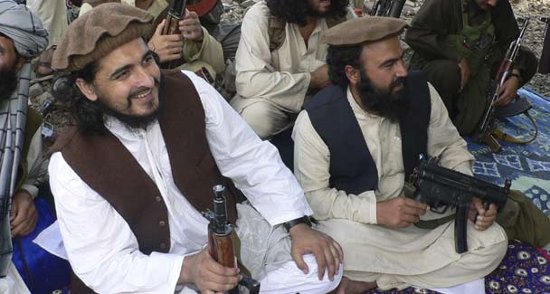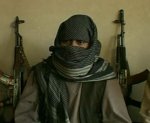Iraq Report: A Look at Iraq Operations
More details have emerged on the operations in the Thar Thar region of Anbar province. Meanwhile, operations in Baghdad, Baqubah and against al Qaeda's network continue to evolve the Iraqi and U.S. recruiting and training of local police south and west of Baghdad shows some positive results.
The 3rd Battalion, 1st Marines [3/1] are conducting clearing operations in the Thar Thar region of Anbar province. Brigadier General Charles Gurganus, the commanding general of the Ground Combat Element, Multi-National Force-West said he expected to encounter light resistance and find weapons caches and factories during an interview earlier this week.
Marines.com reported the operation in the Thar Thar region is called China Shop, and the 3/1 found three large caches on June 25 and 26. "The first cache reportedly contained more than 121 IEDs, more than half of which were already armed. The devices included "speed bump"� IEDs, often placed or buried in roads ... The second find was the largest of the three. A house search uncovered a room containing a high-explosive stack nearly three feet high draped in a United Nations flag. Battalion personnel estimate the material could have been used to construct more than 80 large IEDs ... The third cache ... [contained] various small arms munitions, a rocket-propelled grenade, 10 pressure plate IEDs and other bomb making material."
The raids against al Qaeda's network are ongoing. Coalition Forces killed three al Qaeda operatives and captured 26 during operations Friday in Fallujah, Karmah, Baghdad, and Mosul.
Kinetic operations are said to be "winding down" in Baqubah, the focal point of Operation Arrowhead Ripper in Diyala province. "With almost no hostile fire reported in days, combat operations are winding down," said Drew Brown in Stars and Stripes. "The focus of the effort now is to consolidate control and persuade local residents to begin cooperating with U.S. troops and Iraqi security forces."
David Kilcullen the Senior Counterinsurgency Adviser for Multinational Forces Iraq described this phase in an update on the scope of the operation at Small War Journal. "The really decisive activity will be police work, registration of the population and counterintelligence in these areas, to comb out the insurgent sleeper cells and political cells that have "gone quiet" as we moved in, but which will try to survive through the op and emerge later," said Mr. Kilcullen. "This will take operational patience, and it will be intelligence-led, and Iraqi government-led. It will probably not make the news (the really important stuff rarely does) but it will be the truly decisive action."
In Baghdad, clearing operations have focused on the Rashid District in the west and New Baghdad (or Sadr City) in the east. In the Rashid neighborhood of Amil, U.S. forces found a cache of Iranian-made rocket parts, which included " several empty 107mm cases with the same lot numbers as those seized June 17, one rocket launcher, materials to build more than 50 launchers, 13 60mm mortar rounds, one 81mm mortar, rocket-propelled grenades, a large quantity of homemade and plastic explosives," and small arms and ammunition. Also, two weapons caches were found in mosques in Rashid. Seven insurgents were killed and 17 captured since June 27.
In the Risalah neighborhood, three insurgents were killed and seven captured on June 28. "An alleged IED cell member with known connections to Jaish Al-Mahdi leaders" and a "financier of a local terrorist cell" were among those captured. In Sadr City, Coalition soldiers captured 5 insurgents and uncovered three small weapons caches.
To the south and west of Baghdad, the recruiting and training of local police is ongoing. Eight hundred police graduated from the six-week emergency response unit [ERU] training course. ERUs fall under the command of the provincial governor. The police will be deployed in Haswah, Bahbahhani, Eskan, Iskandariyah, and Musayyib in northern Babil province.
Over 600 candidates volunteered for the local police in the Nasir Wa Salam and Abu Ghraib neighborhoods west of Baghdad. The local tribes encouraged their members to join the police to fight al Qaeda. "The first day was a resounding success,"� said Lt. Col. Peter Andrysiak, deputy commander for 1st "Ironhorse"� Brigade Combat Team, 1st Cavalry Division. "The large turn out was not entirely unexpected. We have been working with reconcilable tribal leaders and the government of Iraq to make this happen."�
The co opting of tribal leaders and insurgent groups formerly hostile to U.S. forces and the Iraqi government is reconciliation at the local level. The policemen will also be executing "the really decisive activity" during the next phase of securing Iraq as described by Mr. Kilcullen.


